Free shipping
30-day money back
+26,000 members
Free shipping
30-day money back
+26,000 members
Free shipping
30-day money back
+26,000 members
Over 50 years of research.
Over 50 years of research.
Over 50 years of research.
We’re making it accessible.
We’re making it accessible.
We’re making it accessible.
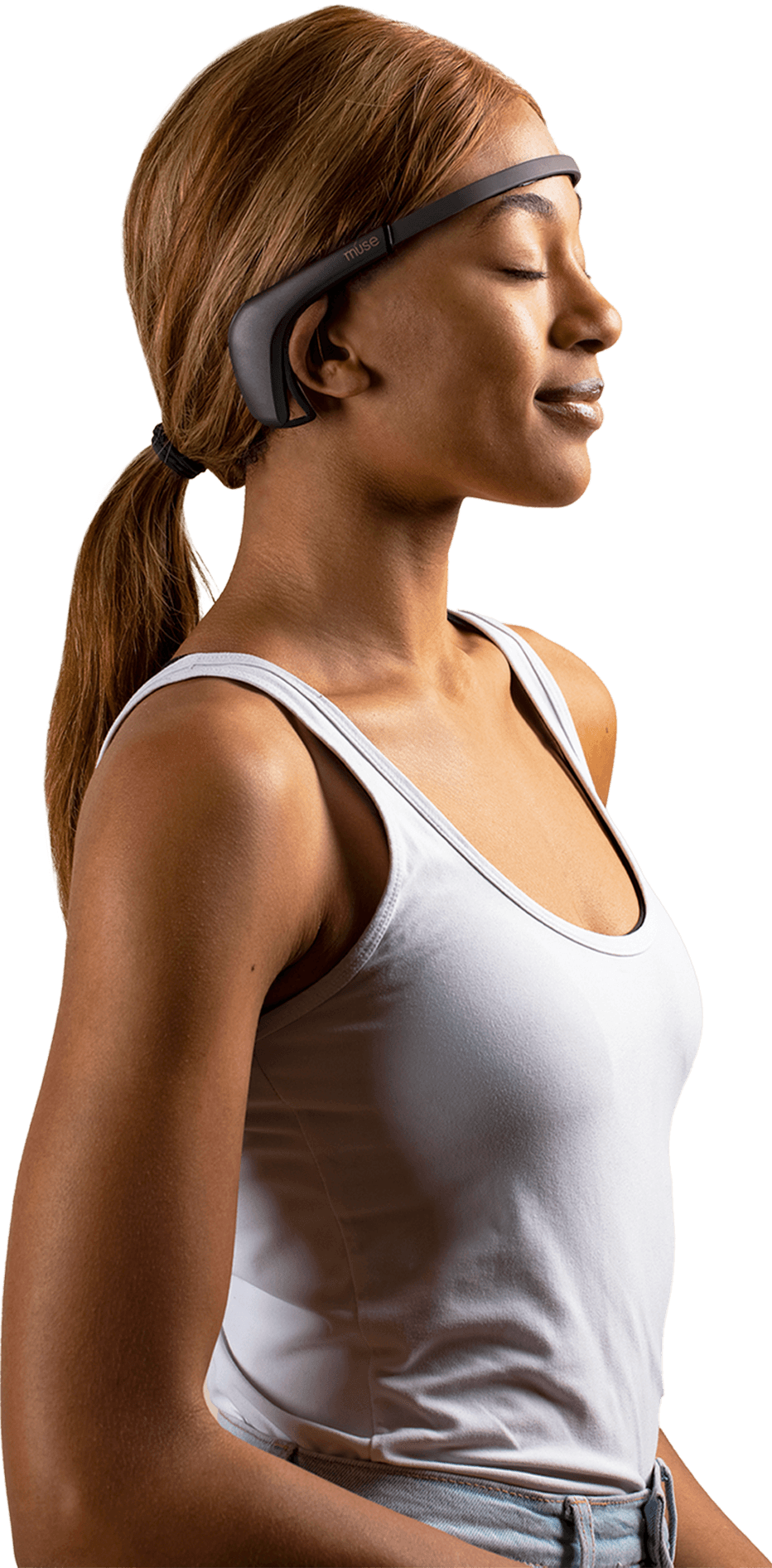


Measurements
Measurements
Brain labs and neurofeedback clinics have long employed EEG for the purposes of assessing cognitive functions, sleep, and even retraining the brain.
EEG electrodes are placed on precise areas of the scalp. This plays a significant role in giving meaning to the generated signals.
To achieve the same placement flexibility and accuracy in interpreting the signals, Myndlift adds an external gold-cup electrode to the Muse headset
Brain labs and neurofeedback clinics have long employed EEG for the purposes of assessing cognitive functions, sleep, and even retraining the brain.
EEG electrodes are placed on precise areas of the scalp. This plays a significant role in giving meaning to the generated signals.
To achieve the same placement flexibility and accuracy in interpreting the signals, Myndlift adds an external gold-cup electrode to the Muse headset



Signal quality
Signal quality
EEG signal is sensitive to external noises and requires delicate handling.
These graphs show how Myndlift’s signal processing compares with that of a clinical-grade system
EEG signal is sensitive to external noises and requires delicate handling.
These graphs show how Myndlift’s signal processing compares with that of a clinical-grade system
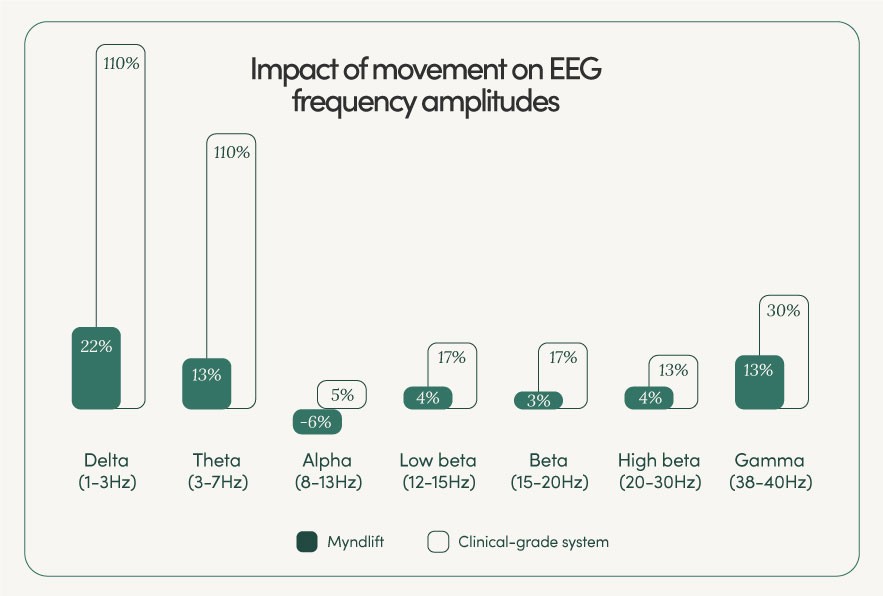


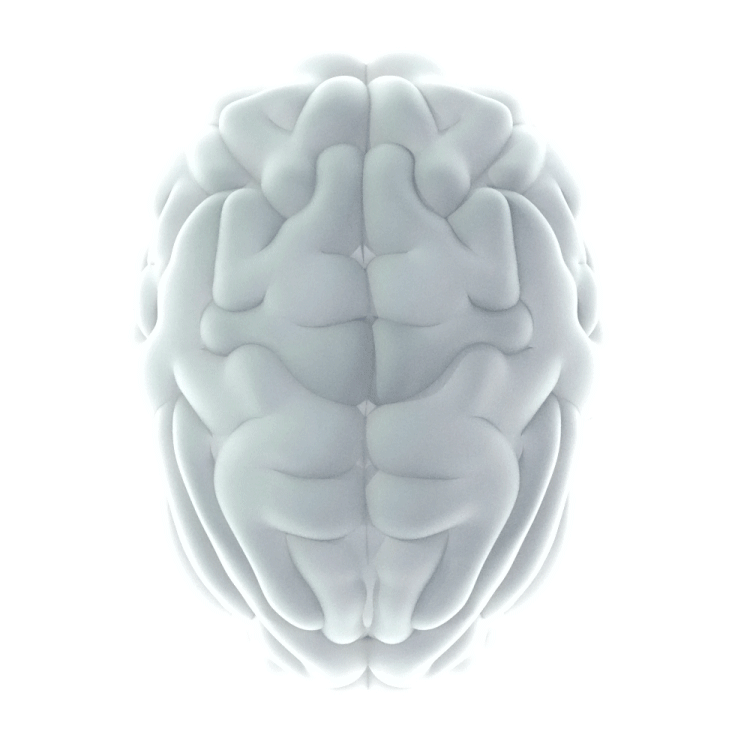


Neurofeedback
Neurofeedback
During our neurofeedback training, the user is rewarded with positive visual and/or auditory feedback when specific brainwaves are in the target range.
For example, in relaxation training, when brainwaves reflect a relaxed state, a rewarding sound is presented in real time.
This conditioning reinforces the desired state over time.
During our neurofeedback training, the user is rewarded with positive visual and/or auditory feedback when specific brainwaves are in the target range.
For example, in relaxation training, when brainwaves reflect a relaxed state, a rewarding sound is presented in real time.
This conditioning reinforces the desired state over time.
See how it works
Foundational research
Foundational research
Foundational research
Over 700 peer-reviewed studies using neurofeedback have been published in the scientific literature, with demonstrated efficacy in attention-deficit hyperactivity disorder (ADHD), anxiety, post-traumatic stress disorder (PTSD), addiction and more.
ADHD
ADHD
ADHD
Anxiety
Anxiety
Anxiety
PTSD
PTSD
PTSD
Cognitive Enhancement
Cognitive Enhancement
Cognitive Enhancement
Read our comprehensive summary of neurofeedback research
Significant improvement in attention
Significant improvement in attention
Results of a pilot study revealed a significant improvement in attention after 9 weeks of Myndlift neurofeedback, as measured by a continuous performance test (CPT).
Results of a pilot study revealed a significant improvement in attention after 9 weeks of Myndlift neurofeedback, as measured by a continuous performance test (CPT).
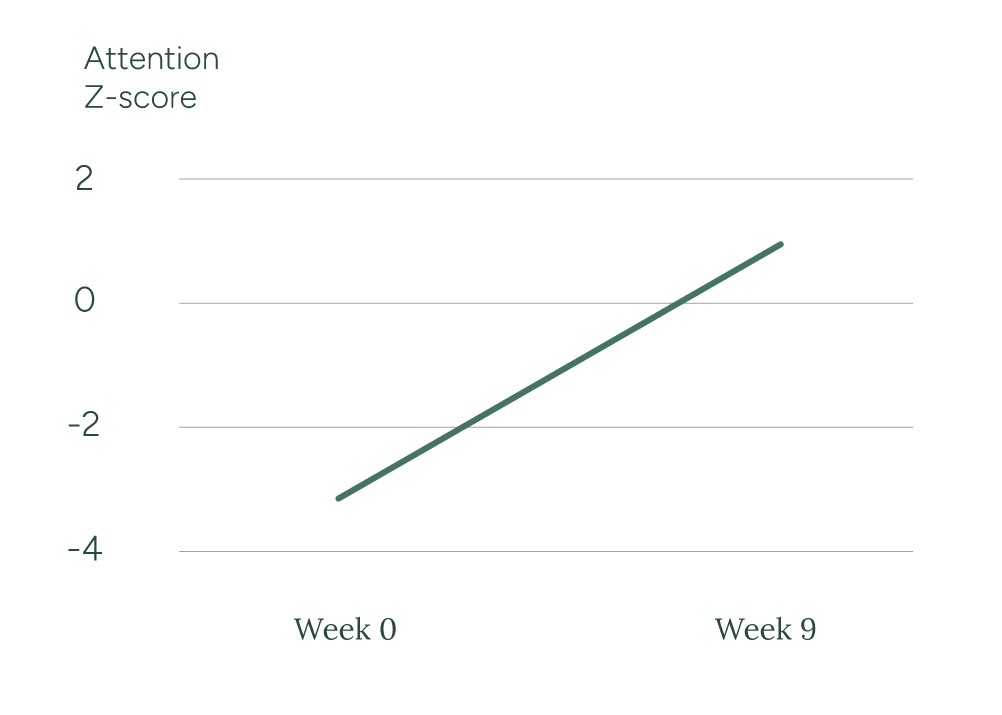


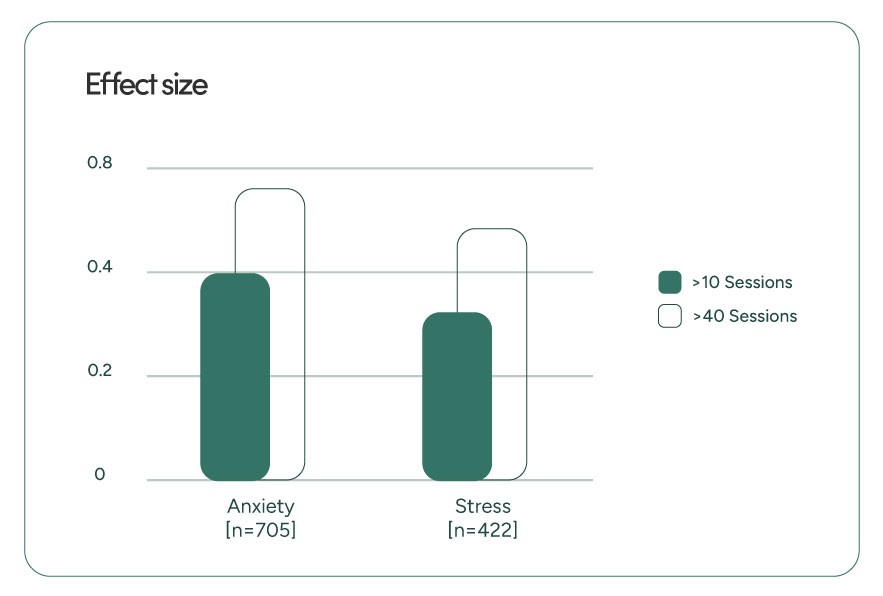


Larger effect size with more sessions
Larger effect size with more sessions
Data analyzed from over 700 Myndlift users revealed greater improvement in symptoms of stress and anxiety with completion of more sessions.
Data analyzed from over 700 Myndlift users revealed greater improvement in symptoms of stress and anxiety with completion of more sessions.
Significantly reduced anxiety
A peer-reviewed study that explored the efficacy of remote neurofeedback in improving mental health, showed that 69% of participants moved from abnormal to healthy score ranges when performing Myndlift's training.
Additional Neurofeedback Research Articles
Additional Neurofeedback Research Articles
Recommended reads on our blog
Recommended reads on our blog
Discover more articles on our blog










